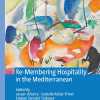Introducing the volume Professor Henry Frendo, who chaired, referred to some of the more significant events that engaged the attention of jurats in deliberations by the Commune. These included the renewed cession of Malta by Charles V to a feudal lord, albeit in this case a rather different multi-national one, but still contrary to a promise in King Alfonso’s ‘Magna Carta Libertatis’ following the uprising against Gonsalvo de Monroy in 1428.
Another discussion point concerned the sack of Malta in 1526 by Sinan Rais, only four years before the Order’s arrival, causing villagers to take up residence in the citadel, Mdina, due to a want of security.
According to peer reviewers, the chairman said, Professor Fiorini had managed ‘to put a massive volume to editorial discipline'.
He then outlined Fiorini’s enormous contribution to Maltese history, mainly but not only about the Middle Ages. Apart from mathematical works, he mentioned historical books and papers published since the 1970s, highlighting the versatility in his themes. Having largely lost Latin and indeed, sadly, increasingly, even Italian, it was vitally important intelligibly to record views and events for posterity through archival research such as that painstakingly and admirably conducted by Fiorini.
In his presentation Judge Emeritus Giovanni Bonello tackled ‘storia povera’, the day-to-day concerns as these emerged from Fiorini’s findings. This was, he noted, ‘history from below’, showing that a richness of values and concerns clearly animated everyday life, indicative of the times and conditions being lived.
The documents showed semantic shift, familiar words used but meaning different things, for example ‘ballottra’. This did not mean a weasel but a lead bullet. Other interesting aspects concerned the provenance of goods such as clothing items and the identification of dress with place; or perceptions about Gozitans. Intelligible terms for vegetable or other food items, mainly of Sicilian origin, were ‘cauli’ for cabbages, ‘chipulli’ for onions, ‘charrubi’ for carobs. Buttons were ‘buctuni’. Milk products included ‘butiru’ and ‘ricocta’.
Prohibitions at law included over-pricing; building on the shore or coast; counterfeit coin; or relieving oneself in public.
President Emeritus Ugo Mifsud Bonnici focused more on the political and legal aspects revealed by the documents. Whereas the colonial government had tended to deny the existence of a Consiglio Popolare, used by the Maltese to bolster their claims to self-government, what this Fiorini volume shows is that such a Consiglio actually existed in mediaeval times. ‘One can observe the gestation period of a distinct Maltese polis, through decisions taken and recorded ad hoc. The acta do not record speeches, but register opinions and votes.’ The Universita’ sought the reconciliation of the common good with individual rights – common ownership of particular areas of land, the provision of common services, the financing of the state.
State lands, the provision of education and health services as well as the imposition of taxes, Dr Mifsud Bonnici added, continued to be principal subject matters of government. The whole question of good government circled on how to defend the country from foreign invasion, to maintain order, administer justice between citizens, prevent private interests encroaching on the common good, restraining the state from invading the individual’s rights unduly. There was the provision of arms for self-defence, the repair of towers, the organization of the Dejma and coastal watches, sometimes reinforcements from Sicily. Court litigation could be petty, such as the ownership of a donkey; although there was no separation of powers as this later developed. ‘The Universitas was also a litigant and an appellant to the Magna Regia Curia, which referred the case back to the Corte Capitanale.’ One of the more learned jurats was Notarius Paulus Bonellu. In Dr Mifsud Bonnici words, “this work is an important contribution to political anthropology”.
Fiorni’s documentary sources thus showed, Frendo concluded, a nation in the making. Lines of developmental continuity could be traced. Symptoms and practices were closer to our own times than one might think, linguistically and socially as well as politically and juridically.
The volume is on sale for 65 euros from bookshops or directly from the MUP on campus.



